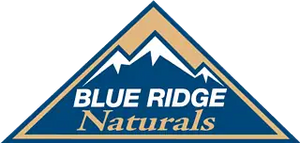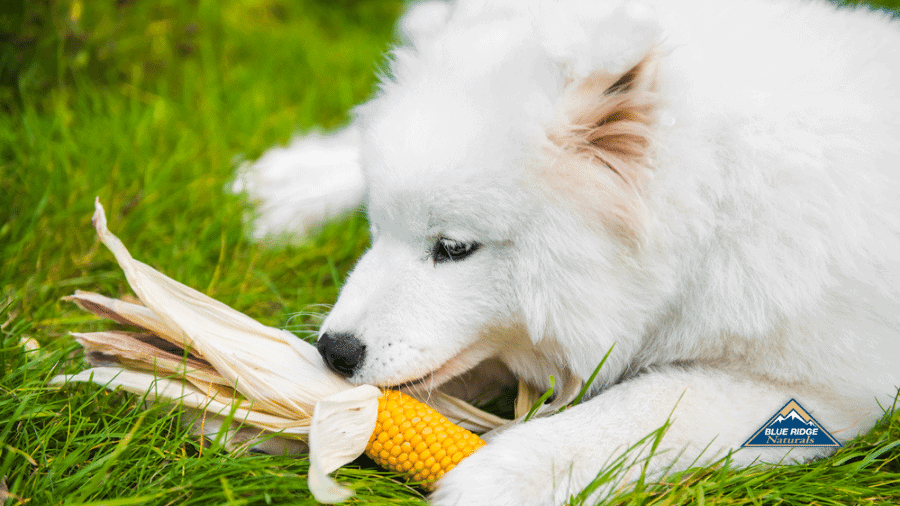Corn may be a popular side dish at the dinner table, but is it a healthy option for our furry friends? It’s a good question and an important topic. After all, humans and dogs have different nutritional requirements and diets. In this article, we’ll answer the question, “Can dogs eat corn?” But we’ll do much more than that.
We’ll provide you with detailed information that can help you decide for yourself if corn is safe for your pet to eat or not. We’ll also discuss potential risks and precautions, and other treat options. So, let’s dig in and explore the relationship between dogs and corn!
Understanding Canine Nutrition
Before you decide if your furry friend can eat corn, it’s helpful to know more about a dog’s general nutrition needs. There’s actually some debate over whether dogs are truly carnivores or omnivores, but most agree that dogs can benefit from both meat and plant based foods. Fruits and veggies are packed with nutrients that can be beneficial to a dog’s diet.
But as with any ingredient, it’s important to do your own research before dishing out a new item to your pet. Certain fruits and veggies like grapes, tomatoes, and onions are a no-go for dogs.
But overall, you’ll want to make sure that your dog is getting plenty of protein, fats, carbs, minerals, and vitamins to ensure optimal health. Not to mention plenty of water! So dog’s benefit from veggies. What about corn?

Can Dogs Eat Corn Or Corn On The Cob? Can Dogs Eat Corn Muffins?
Questions we see a lot: “Can my dog eat corn?” Or “my dog ate corn, is that ok?” Well, the answer is generally yes; most dogs can eat corn, but in moderation. Same with corn muffins, although you need to limit these even more, thanks to high calories and ingredients like sugar.
But never the corn on the cob! A corn cob is a legit choking hazard (more on that below). You can feed your dog corn off the cob though. Feeding your dog corn off the cob and avoiding corn cobs completely is your best bet. Thankfully corn isn’t toxic to dogs, but there are a few considerations to remember. First, corn should never be your dog’s primary source of nutrition.
A well-balanced diet for dogs should consist of high-quality animal protein. For that reason, if you’re purchasing kibble, be sure to look at the ingredient list before purchasing. Some manufacturers of kibble or treats are known to put fillers as one of the main ingredients to save cost. This is far from ideal though, so make sure that corn isn’t one of the main ingredients listed.
Dog owners should consider corn for their dogs as an occasional treat, instead!
What about fries? Can your dog eat sweet potato fries? Find out here!
Looking for treats that contain ingredients known for their nutrition? Check these options out:
- Alaskan Salmon Jerk – This treat is wheat and gluten-free! And salmon is known for its omega 3 and omega 6 content.
- Sweet Potato Bones – These treats feature only one ingredient – sweet potatoes. They’re simple, delicious, and one of our best sellers.
- Chicken Breast & Sweet Potato Fillets – Looking for the best of both worlds? This yummy treat features lean, human-grade chicken and nutritious sweet potatoes.
Benefits of Corn for Dogs
When fed in moderation, corn may provide certain nutritional benefits to dogs. Corn is a good source of carbohydrates, which can help boost energy. It also contains dietary fiber, which may aid in digestion and promote bowel regularity. It may even help prevent constipation.
In addition, corn has many great vitamins such as vitamin B and folate, not to mention antioxidants such as lutein. Lutein is known to promote eye health, and may help reduce the risk of macular disease. Given the right amount, corn may be a beneficial addition to your pup’s diet, but it comes with many caveats which we’ll discuss below.
Potential Risks and Precautions
While corn is generally safe for dogs, you should still be careful when dishing it out. If you don’t make your corn the right way, your dog may not digest it well. Try cooked corn or corn-based products. And ideally, leave it unseasoned. Certain seasonings like onion, garlic, and black pepper can be dangerous for dogs to consume.
You may also want to ask your veterinarian if your dog has allergies. Allergies to corn can lead to your dog having itchy skin, stomach problems or even make it hard for them to breathe. Make sure to ask a professional if you have any concerns.
It is worth noting that research doesn’t know all the risks of dogs eating corn kernels. Today farmers tend to change corn and can expose them to pesticides during cultivation. If you’re a pet owner who is cautious about GMOs in your pet’s diet, then it’s best to ask your veterinarian.
Otherwise, you’ll want to wash your kernels well and remove any husks before giving them to your dog. This will reduce the chances of pesticide exposure.

Can My Dog Have Corn Cobs? Can Dogs Eat Canned Corn? Popcorn?
For canned corn kernels, yes if it’s low sodium. But it’s usually not, and normal canned corn can cause salt poisoning. Also, can dogs eat baby corn? Yes, again, if it’s low in sodium. But dogs should NEVER chew on or consume corn on the cob.
If they try to eat a corn cob, they may choke on the cob and create a harmful blockage within their stomach. In some cases, surgery may even become necessary.
For that reason, avoid the cob altogether, always be present when they’re eating, and make sure the corn kernels are small and manageable to consume. On a related note, can dogs eat corn chips? In a word, rarely. And better yet, not at all – feeding corn chips to your pup is generally a bad idea.
One or two shouldn’t hurt, but there’s way too much salt to give them many. Lastly, can dogs eat popcorn? Plain, yes. Buttered or salted, same as chips – very rarely and very little.
In general, corn shouldn’t be a primary component of a dog’s diet, but more of an occasional treat. There are likely better options out there, with better nutritional content. If you have any questions though we recommend asking a veterinarian who can focus on your dog’s unique needs.
They’ll have a better idea of what your pup’s diet may be lacking and can recommend the right foods for your specific doggo.
Final Thoughts
If you’re looking for treats that are made with high-quality ingredients known for their nutrition, we we have a variety of delicious options for you.
Here are Blue Ridge Naturals, we strive to offer the best, healthiest, and highest quality treats on the market. Discover your options at our online store!


